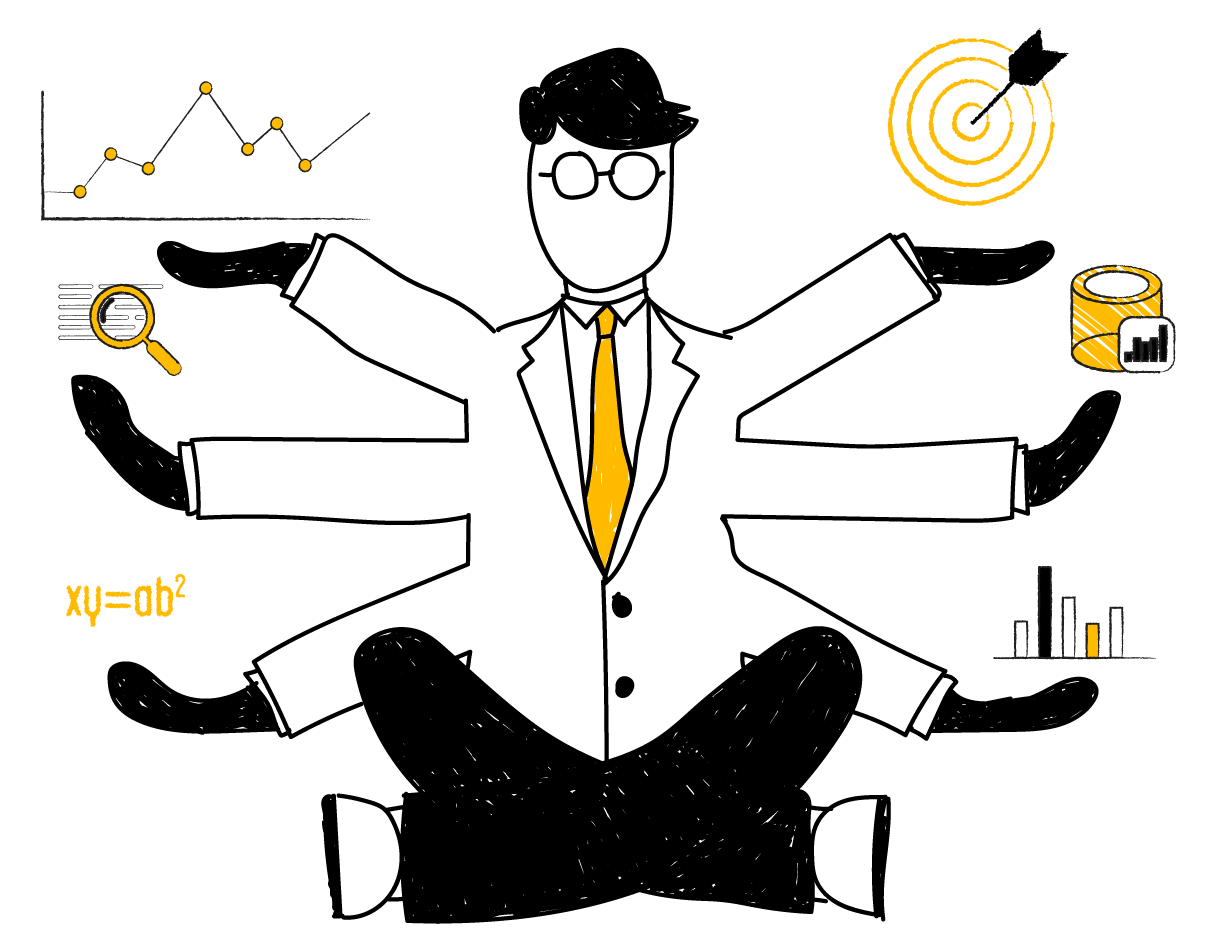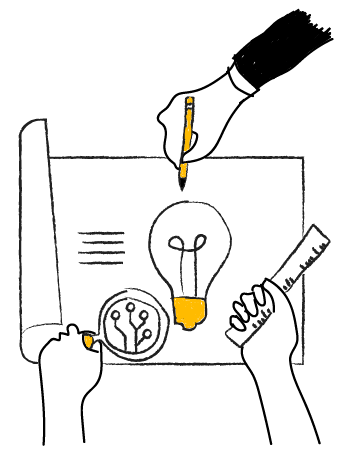Interested in Data Science but not sure where to study or what to study?
We hear you.
One of the questions that our founder often receives is, “Dr Lau, which degree should I choose if I want to become a data scientist or data analyst? All degrees look the same, but I can’t tell the difference. How do I choose?”
We will review which factors to consider when picking data science programs.
After we cover this we will be comparing data science programs from three Malaysian universities: APU, UM, and MMU.
This article is specifically curated for Malaysian Data Science students.
Factors to consider when picking data science programs
The first thing to consider is the three essential skills that you need in a data science career: programming, mathematics and statistics, and domain knowledge.

The corresponding subjects in a university degree are computer science, mathematics and statistics, and business and communications.
Computer science helps us understand data structure as well as learn how to process and massage our data.
Mathematics and statistics help us understand our data and know which model to choose.
Business and communications skills enable us to identify business problems, create visualizations, and present our findings.
So how do you pick your degree based on this skill requirement?

It depends on your career path, for example:
- If you want to be a data scientist, you will need to be an all-rounder.
- If you want to be a data analyst, you need to have strong business analytical skills.
- A data engineer needs to be good at networking and cloud computing.
- An AI developer or machine learning engineer needs to be adept in mathematics.
We have put the university subjects into three categories: the must-have subjects, good-to-have subjects, and interest-based subjects.
You can use this as a guideline to help you to pick the degree that suits you.
The must-have subjects are subjects that everybody should learn- no matter which career path you choose.
Must have subjects:
For example, SQL.
SQL is a language that we use to manage relational databases like MySQL or Microsoft SQL.
We use it to insert, retrieve, update, and delete records in our database.
Then you will need to learn a programming language like Python and R.
We write programs in order to give machine instructions.
This is so that they can perform specific tasks such as gathering data, cleaning data, and building predictive models.
Additionally, we use programming languages to help us to process data that we cannot handle manually such as big data and unstructured data.
Analysing unstructured data is another important subject.
About 80% of the world data is actually unstructured.
These include documents, text messages, audio, photos, and videos.
Analysing unstructured data will give us insights that we can’t get from analysing numerical data.
Another key subject in a data science degree is database design.
You will learn how to structure a database to avoid collecting redundant data and how to collect quality data consistently.
In the data structure and algorithm subject, you will learn how to handle different data types using algorithms, understand how to calculate the time you need to execute an operation, and how to reduce complexity in your code to achieve optimized performance.
Must have data science subjects in mathematics and statistics:
- Descriptive statistics.
Data scientists use descriptive statistics to summarize datasets.
We use simple methods like mean, median, and standard deviation, to learn the distribution of our data and identify potential problems.
Then, you need to apply discrete mathematics techniques such as set theory, permutations, combination, and probability theories to help us to understand the boundary and estimate the potential complexity of our problems.
After learning discrete mathematics, it is important to learn how to use regression analysis to find the relationship between variables.
We can use it to forecast future values or analyse time-series data.
Then you will need to know how to apply machine learning or statistical modelling to choose the most appropriate method to answer our questions.
This will help us to make informed decisions.
Must have data science subjects for business and communication:
- “data visualization.”
We visualize data in almost every stage of a data science project lifecycle.
Visualization helps us to identify outliers, understanding distribution, finding patterns, and presenting results to stakeholders.
Also, make sure you choose a business subject that covers predictive analytics in the industry.
This should not be a technical course that teaches you how to build predictive models.
Instead, it should cover the principles and techniques for conducting a predictive business analytics project.
This subject should build up your domain knowledge in major industries like finance, accounting, and pharmaceutical.
You will learn how they apply analytics in their business.

Next up, let’s look at the good-to-have subjects in data science.
The subjects here are good-to-have because not everybody needs them.
It depends on your career path.
For instance, if you want to become a machine learning engineer and venture into neural networks and AI, you will need to learn Calculus.
We use calculus in deep learning to find the rate of change in our functions. So that we can use it to optimize the performance of our models and improve the accuracy.
If you want to work with text and social media, you will need to pick Natural Language Processing or NLP in short.
NLP allows us to extract topics from documents, which we can use to identify fake news, understand product review, and perform sentiment analysis.
It is also one of the main technologies behind voice assistants like Siri and Alexa.
If you are a visual person who likes to work with image problems such as facial recognition, CCTV, or even driverless cars then you will need to take the Computer vision or image processing subject.
Here you will learn how to process images and videos to identify objects, recognize human faces, detect movements, and how to track vehicles to prevent accidents.
If you want to become a data engineer, then you must take the Networking and cloud computing subjects.
In networking, you learn how to design a secure and scalable network architecture for users to ingest, publish and consume data.
You will also learn how to secure the data so that only the authorized users can access the sensitive data.
You need to know how to set up a scalable network without using on-premise hardware which means all your servers, storage, and databases are hosted with cloud providers such as AWS or Google Cloud.
Don’t be intimidated by the word “cloud,” it simply means the Internet.
Before you go and pick your degree;
I need to highlight the two data science types of subjects that you need to beware of.
The filler subjects and the buzzword subjects.
A data science degree is not a new degree, some degrees inherit subjects from older programs like IT, computer science, and business.
For example:
- Computer architecture
- Operating systems
- Cybersecurity
- Technopreneur
Don’t get me wrong, these are useful subjects if you are studying computer science, software engineering, or some other degrees but it won’t help much if you are studying data science.
Another type of subjects that you should be cautious of are subjects that contain buzzwords such as big data, blockchain, artificial intelligence, and external certification.
Most of these subjects containing hot buzzwords are just touching on the superficial concept level, and less on the application.
Also, these technologies are still evolving, so the industry might have changed after you’ve completed your degree.
There are also not many jobs out there that require the knowledge of these buzzword technologies.
The same goes to external certification.
Some subjects are tied to or are part of the requirements to get an external certificate.
So please make sure these certificates are relevant for your future job, before choosing them.
Now, let’s look at how we can apply these criteria and choose a university for your data science degree.

Data Science relevant degree: Asia Pacific University aka APU
It’s a Bachelor of Science with a specialisation in data analytics.
This is not a pure data science subject, but you expect to learn some science subjects with data science as the specialisation.
In their level 1 subjects, it’s good that they cover Python programming, mathematical concepts, and introduction to databases.
In the specialised modules, there is C programming.
You don’t really need C programming in data science, but you may take it if you want to build a solid foundation in programming, or if you want to deep dive into data structure and algorithms.
In level 2, the programming for data analysis is good for data science.
We don’t really use Java in data science, but it gives you a good understanding of object-oriented programming.
Most of the subjects in the specialised modules are practical and related to data science.
For level 3, it covers algorithms, behavioural science marketing analytics, text analytics, and database security.
Overall, this program covers data science pretty well.
It doesn’t cover too much on the mathematics and statistics part nor is there less specialised subjects like machine learning, image processing, and data engineering subjects like cloud computing though.

Data Science relevant degree: the University of Malaya aka UM
They offer a Bachelor of Computer Science (data science) program.
They have a joint professional certificate with SAS, which is good, but make sure you check that your future employers are using SAS or are planning to.
Because it is proprietary software, and their licensing fee is not expensive only large corporations have the budget that most SMEs are not willing to spend.
It is good that we get to learn the Fundamentals of Programming and Computing mathematics in the first semester.
But you will only start to learn data science in Semester 2.
Good thing is that this degree teaches Machine Learning and Data Structure.
But subjects like computer systems and organisations, computer system architecture, are more comp science rather than data science subjects.
Some of the useful subjects in semester 3 are covers database, probability and statistics, and maybe project management.
Don’t confuse software modelling here with data modelling or predictive modelling.
Software modelling is a software engineer subjects that teach you how to design and build applications.
In Semester 4, I don’t think you need operating systems knowledge for data science, and a network technology foundation is recommended for those who want to pursue data engineering.
Semester 5 onwards are for your project and internship.
They didn’t list down the electives on their website, but you can find the mapping from the student handbook.
Most of the subjects here are relevant, except maybe knowledge representation and reasoning.
Take this subject only if you are interested in Information Retrieval, ontology, and graph theory.
Functional and logic programming is also a technical subject if you want to dive into functional programming for machine learning.
Data Science relevant degree: Multimedia University aka MMU
Multimedia University (MMU)’S degree program will have a stronger focus on computer science.
Therefore, you see the focus on computer architectures, object-oriented programming, data structures.
There isn’t any specialisation in your Year 1 and when you go to year two you still learn software engineering, operating systems, object-oriented analysis and design, which are not so data science-focused.
They are mainly comp science and software engineer subjects.
The only subject that is more data science-related is algorithm design and analysis, and we have two specialisation subjects in your year 2 which are an introduction to data science and statistical analysis.
As usual, you will focus on your internship and final year project during year 3 and learn data mining and data visualisation.
I also won’t recommend taking subjects like big data application analytics and trends in data science as your first choice as they usually focus on case studies and writing reports as your assignments.
You can spend your credits on other subjects and learn to gather information on these subjects from the Internet.
For this program, you can choose 2 modules from your specialisation, out of 3.
So, we don’t have too many options here.
For electives, there is data management, social media computing, and visual information processing.
Data management is important for a data engineer.
The other elective modules are mainly from other specialisation e.g., game design, cybersecurity, and SE.
There are no electives such as unstructured data processing, machine learning, deep learning, cloud computing.
MMU data science degrees suit those who want to learn data science and wish to have a strong focus in computer science and probably does not suit you if your career goal is less technical, and more on the business side.
By now you should have a clear understanding of how to pick a data science degree base on your career path.
Let me know which degree you will pick in the comment section and feel free to email us at mailto:chelsea@thelead.io.




0 Comments